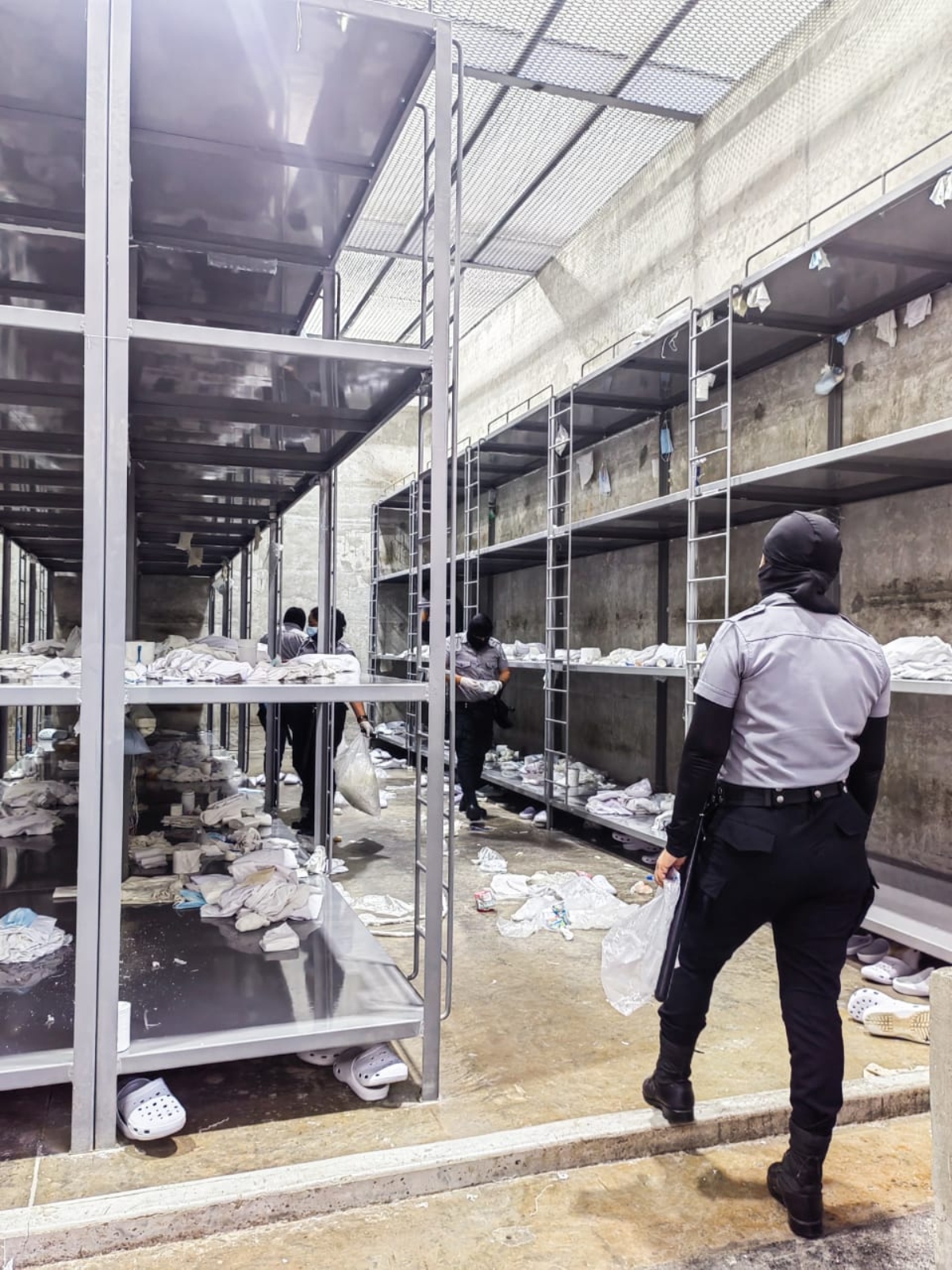US President Donald Trump publicly thanked Salvadoran President Nayib Bukele for accepting the deportation of migrants classified as “high risk” by Washington. The message was given this April 14 in a joint press conference from the Oval Office at the White House, where both leaders highlighted their cooperation on security and migration issues.
Trump, in his second term, has intensified his rapid removal policy against suspected members of international gangs such as MS-13 and Tren de Aragua (TdA). As part of this operation, El Salvador has authorized the use of its maximum security prison CECOT (Centro de Confinamiento del Terrorismo) to hold deportees. “You are helping us like never before. Thank you, President Bukele. We have expelled hundreds of individuals with terrorist ties,” Trump told Bukele.
Cecot, a key player

The CECOT, inaugurated in 2023 and located in Tecoluca, El Salvador, was conceived to house local gang leaders.
However, in 2025 it has become a destination for migrants expelled from the U.S., under the argument that they represent threats to national security.
This includes suspected members of international gangs, such as MS-13 and Tren de Aragua, the latter originating in Venezuela.
El Salvador has authorized the use of its maximum security prison
QueOnnda.com
In support of the agreement, the U.S. government has earmarked US$6 million to reinforce Cecot’s facilities, as confirmed by officials from both countries.
However, the full terms of the agreement have not been officially published, which has generated concern among human rights defenders.
Law of 1798 reactivates expulsions

As a legal basis, the Trump administration has again invoked the Alien Enemies Act of 1798.
This rarely used rule allows for the expedited detention and expulsion of foreign nationals considered threats in times of international conflict or tension.
Under this criterion, more than 200 migrants have been sent to Cecot since January 2025.
Immigration experts warn that official figures may include people with no confirmed criminal history in the U.S.
Criticism and concerns

Several U.S. and international organizations have criticized the use of Cecot to house migrants without formal trials.
They argue that the lack of transparency and the possibility of arbitrary detentions could set a negative precedent for future immigration policies.
For more information, visit QueOnnda.com.























